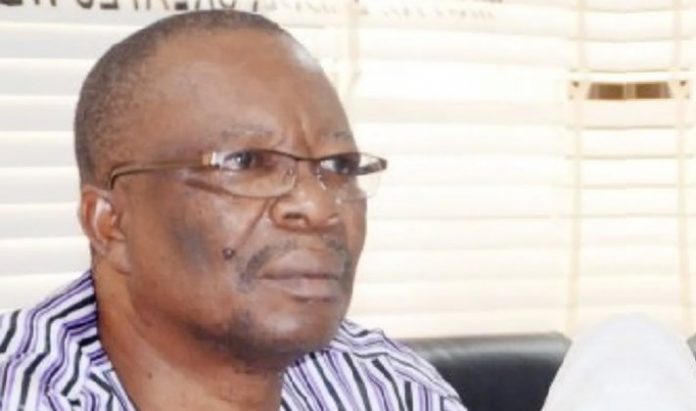The Academic Staff Union of Universities (ASUU) has rejected the salary package the Federal Government offered, describing the salary as ‘miserly’ offer.
The ASUU President, Prof. Emmanuel Osodeke in a statement said, “The major reason given by the Federal Government for the miserly offer, paucity of revenue, is not tenable.”
This is as the Federal Government on Thursday insisted that it will not concede to the demand by ASUU members to be paid the backlog of salaries withheld during the ongoing strike.
But, Osodeke explained, ‘‘This is because of several reasons chief of which is poor management of the economy. This has given rise to leakages in the revenue of governments at all levels.
Read ALSO
- ASUU Prolongs Strike By Four Weeks
- ASUU Strike: NLC plans three-day warning strike
- ASUU/FG Imbroglio: NLC to begin three-day warning strike
“There is wasteful spending, misappropriation of funds, and outright stealing of our collective patrimony. ASUU believes that if the leakages in the management of the country’s resources are stopped, there will be more than enough to meet the nation’s revenue and expenditure targets without borrowing and plunging the country into a debt crisis as is the case now.
“The Munzali Jibril-led renegotiation committee submitted the first Draft Agreement in May 2021 but the government’s official response did not come until about one year later! Again, Award presented by the Nimi Briggs-led Team came across in a manner of take-it-or-leave-it on a sheet of paper. No serious country in the world treats their scholars this way.’’
According to him, “Rejecting a salary package arrived at through collective bargaining is a repudiation of government’s pronouncements on reversing “brain drain”.
‘‘It is common knowledge that, more now than in the 1980s and 1990s, Nigerian scholars, especially in scarce areas like science and medicine, are migrating in droves to Europe, America and many parts of Africa such as South Africa, Rwanda, and Ghana with supportive environment to ply their trades as well as competitive reward systems for intellectual efforts. Does the Nigerian government care about what becomes of public universities in another five or 10 years, if this trend continues?”
Osodeke noted, “One of such recommendations is the tax on cellphone and communication lines. Ironically, the Federal Ministry of Finance, Budget, and National Planning recently announced its readiness to implement ASUU’s recommendation, as a revenue.
“Reversal of the decay in the Nigerian University System, in order to reposition it for its responsibilities in national development; Reversal of the brain drain, not only by enhancing the remuneration of academic staff but also by disengaging them from the encumbrance of a unified civil service wage structure; Restoration of Nigerian Universities, through immediate, massive and sustained financial intervention; and Ensuring genuine university autonomy and academic freedom.”
Meanwhile, federal government sees the no-work-no-pay policy as the only hindrance in the FG-ASUU negotiations.
The Minister of Education, Adamu Adamu, stated this at the 47th session of the State House Ministerial Media Briefing organised by the Presidential Communications Team at the Aso Rock Villa, Abuja.
“All contentious issues between the government and ASUU had been settled except the quest for members’ salaries for the period of strike to be paid, a demand that Buhari has flatly rejected,” Adamu explained.
He argued that ASUU went on strike despite the Buhari regime and agencies such as TETFUND and UBEC directly investing trillions of naira in education.
Adamu also stated that five of the six striking university-based unions will likely return to work within the next one week, whereas ASUU’s remains uncertain.
The FG, according to him, rejected ASUU’s demand to be paid the backlog of emoluments for the past five months because it believes that there should be penalties for their actions.

